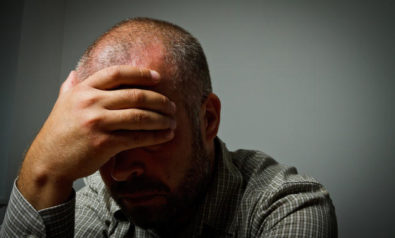In the US, a problematic relationship exists between law enforcement and prostitution. This is the last of a two part series. Read part one here.
Some may have questioned that accusation prior to the Secret Service prostitute scandal in Columbia and the disclosure of other government officials, DEA agents, and elected politicians and ambassadors hiring the services of prostitutes. But it is not so easy to dismiss those allegations now that the world is aware of “client number nine,” Eliot Spitzer, “diaper man” Senator David Vitter, and so many others. The face these pillars of the community put forward to the world is the one which condemns all prostitution as “human trafficking” and “sex slavery.” The face sex workers see is one of lies, lust, and hypocrisy. As Spitzer so eloquently put it: “We have within us all drives, urges which should be tempered, controlled, modulated, held in check that I did not.”
None of these high profile cases resulted in the arrest or incarceration of the client, even when federal felony laws were broken. In Spitzer’s case, he violated the Mann Act by arranging for his “sex slaves” to meet him out of state, in Washington DC and Florida, where he apparently enjoyed many of his illicit trysts.
Above the Law?
The providers of sexual services were not so fortunate, which highlights the arbitrary nature of vice law enforcement, wherein police and prosecutors can selectively apply the law. No, it is not a viable solution to decriminalize the prostitute while making the non-violent, non-abusive client the criminal. The so-called Swedish model infantilizes adult women by disallowing our choices and presuming we are incapable of making our own sexual decisions. Nor does this in any way address the underlying matter of selective enforcement. This policy creates a situation where the cop or prosecutor can threaten to arrest or prosecute the clients of any particular prostitute if the sex worker doesn’t provide them with sex, money or information.
Even those entrusted with the enforcement of the Swedish law cannot keep their pants zipped up around sex workers.
Shouldn’t society be more concerned with the hundreds of thousands of violent rapists who have actual victims, who are never arrested or prosecuted, and who are free to rape over and over again? Why are so few street cops, police chiefs, judges, and prosecutors who pimp, extort, rape, rob, beat, and hire prostitutes arrested, prosecuted and punished? Are they above the law?
San Francisco cops hired a prostitute for a graduating party held at the Rathskeller Restaurant, to perform oral sex on one of the recruits. The story was leaked to the press and a scandal ensued, but even after at least two prostitutes were called to testify against the officers who hired the one prostitute to perform oral sex on a handcuffed police cadet, no indictments were handed down despite the fact that hiring a prostitute for someone other than yourself is a felony called “pandering.” The officers did not get arrested. However, the prostitute did, several times, including the day she was to testify against the cops who hired her.
Many more stories involving predators with a badge are widespread, including pedophile law enforcement and other government agents, cops who rape women at traffic stops, and officers who beat or kill their spouses. Crooked cops, prosecutors, and judges are not unique to the US; such incidents occur all over the world wherever any part of consenting adult prostitution is prohibited. It is not just the rank and file officers who extort or solicit favors from prostitutes, or who pimp prostitutes — even 13-year-olds. Judges and prosecutors have traded favors with sex workers. Even chiefs of police are not immune from the temptation to get “free samples” from sex workers.
Cops are Human
Fortunately for society, not all or even most cops are corrupt. Unfortunately, for good cops in agencies where corruption thrives, their options are limited. They must either look the other way at the misdeeds or criminal activity of their colleagues, join in the corruption so as not to cast suspicion on themselves that they may be working with the Feds, or they must leave their job and any retirement, health insurance and other benefits they may have already earned. So many unpleasant consequences to consider just to keep your conscience clear.
The best way to stop police corruption is to minimize the opportunities that tend to corrupt. Cops are human. When police officers are able to pick and choose which people they will arrest based on what the “suspect” has to offer them, and recruiting “informants” whom you can legally allow to continue to break the law is not only acceptable but encouraged by your department, corruption is the only possible outcome. And when sex and money are involved, there are very few male officers who can resist the temptation to demand “free samples” or ask for a payoff to ignore the “vice crimes.” Anyone who believes that “vices” — which have been enjoyed or abhorred by so many since the beginning of time — are ever going to be eliminated or abolished, regardless of the harsh penalties imposed on those selectively charged with a crime, is seriously dialectically challenged.
The penalty for engaging in prostitution has at times and in some places included execution. And yet, it thrives even where the death penalty is a possible consequence for providing others with prostitutes. China, for example, executed madams as recently as 2011, claiming that the madam was forcing women into prostitution, which is the same unfounded argument posited by all governments which ban sex work (“women must be forced into prostitution because no one would choose to be a prostitute”). Most often, madams and prostitutes are charged with crimes because they refuse to pay off the police. It is, unfortunately, the same around the world, from New Jersey to Spain, from 1930 (and of course, far into the past) to 2013. You can work as a prostitute as long as you “cooperate” with the local police.
Decriminalizing Prostitution
Prostitution abolitionists contend that in those countries which have decriminalized or legalized prostitution, there has been an increase of violence against prostitutes — but what standard of measurement could they possibly use to validate such a claim?
Where prostitution is prohibited for either the prostitute or the client, it is not likely that a victim of violence will report the crime to authorities. Knowing that the probable outcome of going to the police to report the violence is most likely to be either the non-investigation of the crime by disinterested law enforcement officers, or their own arrest, prosecution and incarceration (also called “rescue and rehabilitation”), tends to discourage victims of violence from reporting a crime no matter how traumatized by the violence they may be.
Under those circumstances, it would be impossible to ascertain how many incidents of violence were not reported because of prostitution laws which deterred such reporting; therefore, how would it be possible for anyone to assert that decriminalization or legalization of prostitution led to an increase of violence against prostitutes? When prostitutes are no longer facing arrest or law enforcement apathy in investigating the crime for which they unequivocally acknowledge they are the victim, there may be a significant rise in the number of reported incidents of violence, perhaps even as much as a 100% increase. That’s not indicative of a rise in violence, but is rather indicative of the empowerment of women to report violence they never before would have considered reporting.
Recently, a Norwegian woman was in Dubai for a business meeting and was raped. She went to the police to report the crime, but instead of investigating and arresting the rapist, she was arrested and convicted of the crime of “having sex outside of marriage,” and sentenced to 16 months in prison. The international outrage at the injustice, pressured the Dubai government to commute her sentence and allowed her to return home.
It is doubtful she was aware of that law or that the law could be applied to her, where she clearly had not consented. If she knew there was a high probability she would be arrested and punished rather than the man who raped her, would she still have reported the crime?
No doubt other rape victims who live in Dubai were and are familiar with the consequences of reporting a rape, so they simply do not report the rape. With few or no reports of rapes, Dubai can claim that the law keeps women safe, and use the lack of reported rape crimes as evidence that the law is working.
What if the Dubai police claimed that abolition of the law would increase the number of rapes — therefore, to protect women, the law must remain even if it discouraged rape victims from reporting the crime? Would anyone accept such a preposterous argument?
Yet this is the argument prostitution abolitionists use to promulgate the continued criminalization of prostitution.
Moral Arbitrage
The US government cannot be the arbiter of moral and philosophical values without compromising the freedom and autonomy of the individual. Society has to decide whether turning otherwise honest law enforcement officers, prison guards, prosecutors, and judges into liars and criminals who commit atrocities in the pursuit of enforcing unenforceable vice laws is worth attempting to prevent consenting adults from engaging in consenting adult activity. Whether you are morally, socially or ideologically opposed to what other adults do to themselves and with other consenting adults; if the people who engage in whatever immoral or anti-social activity you find offensive, have not sought help; and if they do not claim to be a victim of a crime, what right do you individually or collectively have to interfere in the lives of those adults, regardless of whatever harm you believe they are inflicting on themselves?
Are there not enough real victims who have asked for help — but will not get it because there are no cops available — so that you must create victims out of people whom you believe are harming themselves in some way but whose private activity is none of anyone else’s business? The courts in the US have ruled that the police officers have no legal obligation to protect us from a violent predator; why should they be obliged to protect us from ourselves?
The views expressed in this article are the author’s own and do not necessarily reflect Fair Observer’s editorial policy.
Image: Copyright © Shutterstock. All Rights Reserved.
Support Fair Observer
We rely on your support for our independence, diversity and quality.
For more than 10 years, Fair Observer has been free, fair and independent. No billionaire owns us, no advertisers control us. We are a reader-supported nonprofit. Unlike many other publications, we keep our content free for readers regardless of where they live or whether they can afford to pay. We have no paywalls and no ads.
In the post-truth era of fake news, echo chambers and filter bubbles, we publish a plurality of perspectives from around the world. Anyone can publish with us, but everyone goes through a rigorous editorial process. So, you get fact-checked, well-reasoned content instead of noise.
We publish 2,500+ voices from 90+ countries. We also conduct education and training programs
on subjects ranging from digital media and journalism to writing and critical thinking. This
doesn’t come cheap. Servers, editors, trainers and web developers cost
money.
Please consider supporting us on a regular basis as a recurring donor or a
sustaining member.
Will you support FO’s journalism?
We rely on your support for our independence, diversity and quality.











Comment